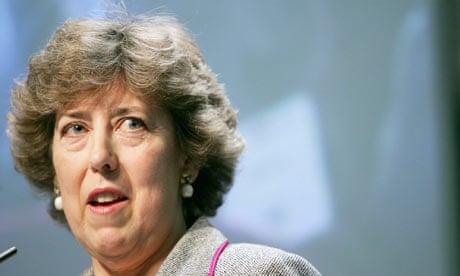The head of MI5 at the time of the Iraq invasion, Lady Manningham-Buller, who expressed concern about plans to invade Iraq, is to give evidence to the Chilcot inquiry, it was announced today.
She is among new witnesses, including Hans Blix, the chief UN weapons inspector, and General Sir Mike Jackson, then head of the army, and John Prescott, the former deputy prime minister, who will give evidence when the inquiry resumes public hearings this summer.
Manningham-Buller told the Guardian last year that she had warned ministers and officials that an invasion of Iraq would increase the terrorist threat. Amid Anglo-US preparations to invade Iraq, she asked: "Why now?"
She added: "I said it as explicitly as I could. I said something like: 'The threat to us would increase because of Iraq.'"
Blix is expected to tell the inquiry that he should have been given more time to see whether Iraq really did have weapons of mass destruction.
Nick Clegg, the deputy prime minister, meanwhile, has said the terms of the Chilcot inquiry into the invasion of Iraq should be changed to ensure the disclosure of as many official documents as possible.
In the most forthright comment from the government on the inquiry, Clegg said at the Hay festival last month: "The battle that needs to be fought is to make sure that in the final Chilcot report the presumption is towards real meaningful thorough disclosure."
The inquiry has often referred to documents obliquely in oral hearings but has not released them. It says the decisions to disclose or release official papers is a matter for the individual departments from where they originated.
Clegg was asked by Philippe Sands QC, an international lawyer and academic, if he agreed that there needed to be a change in the inquiry's protocols so there would be a presumption of disclosure in relation to documents. Clegg replied: "There needs to be a presumption of disclosure, absolutely."
He added: "This is not a game between politicians. What is really important is that Chilcot in its final report does what it was proposed to do all along, which is to make sure that all of us understand how that decision was reached so that we can learn lessons and make sure that we never, ever again have a government hell bent on war and able to bamboozle the British people."
The inquiry, in a separate development, has invited international lawyers to give their views on what was the legal basis, if any, of the invasion of Iraq in 2003.
